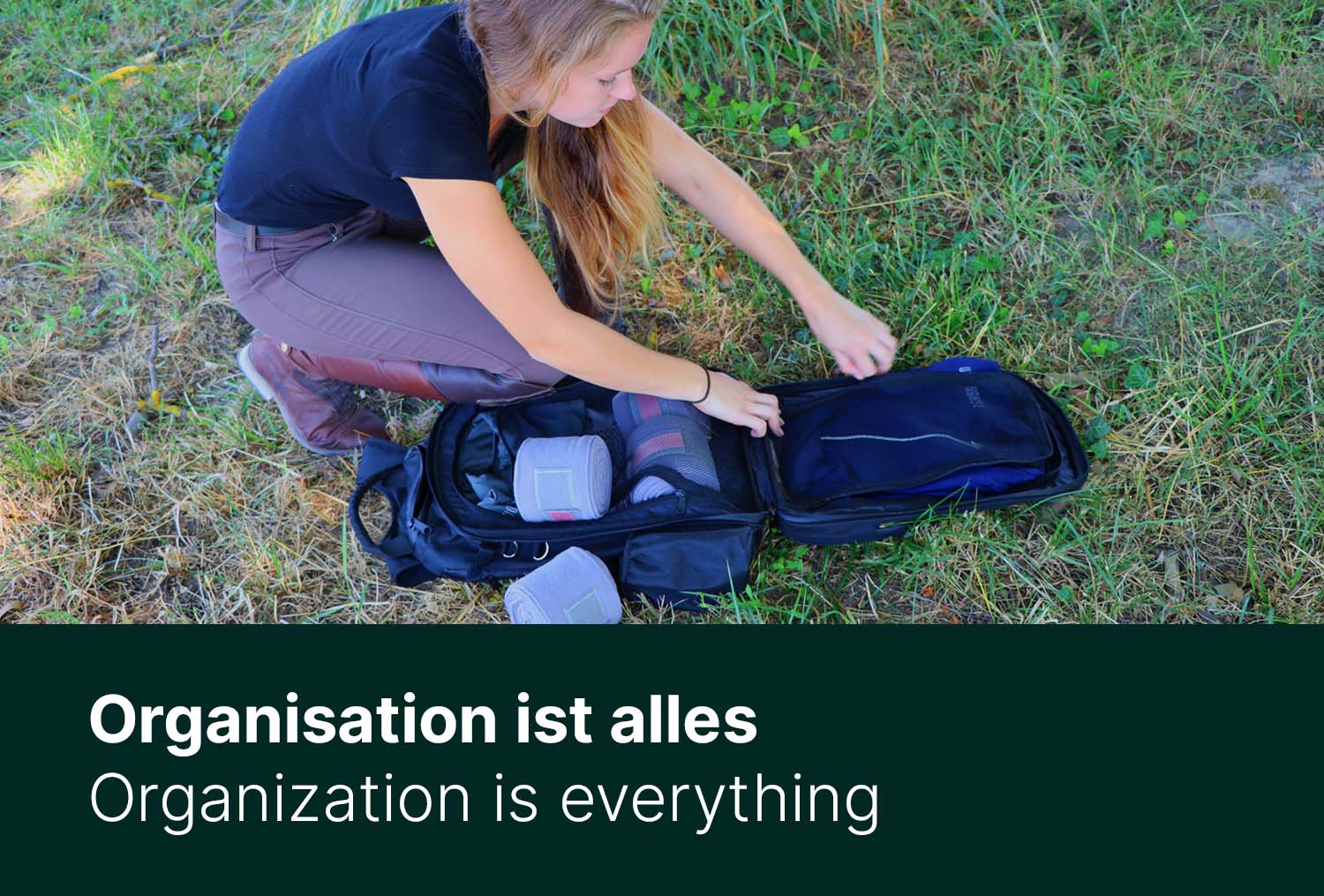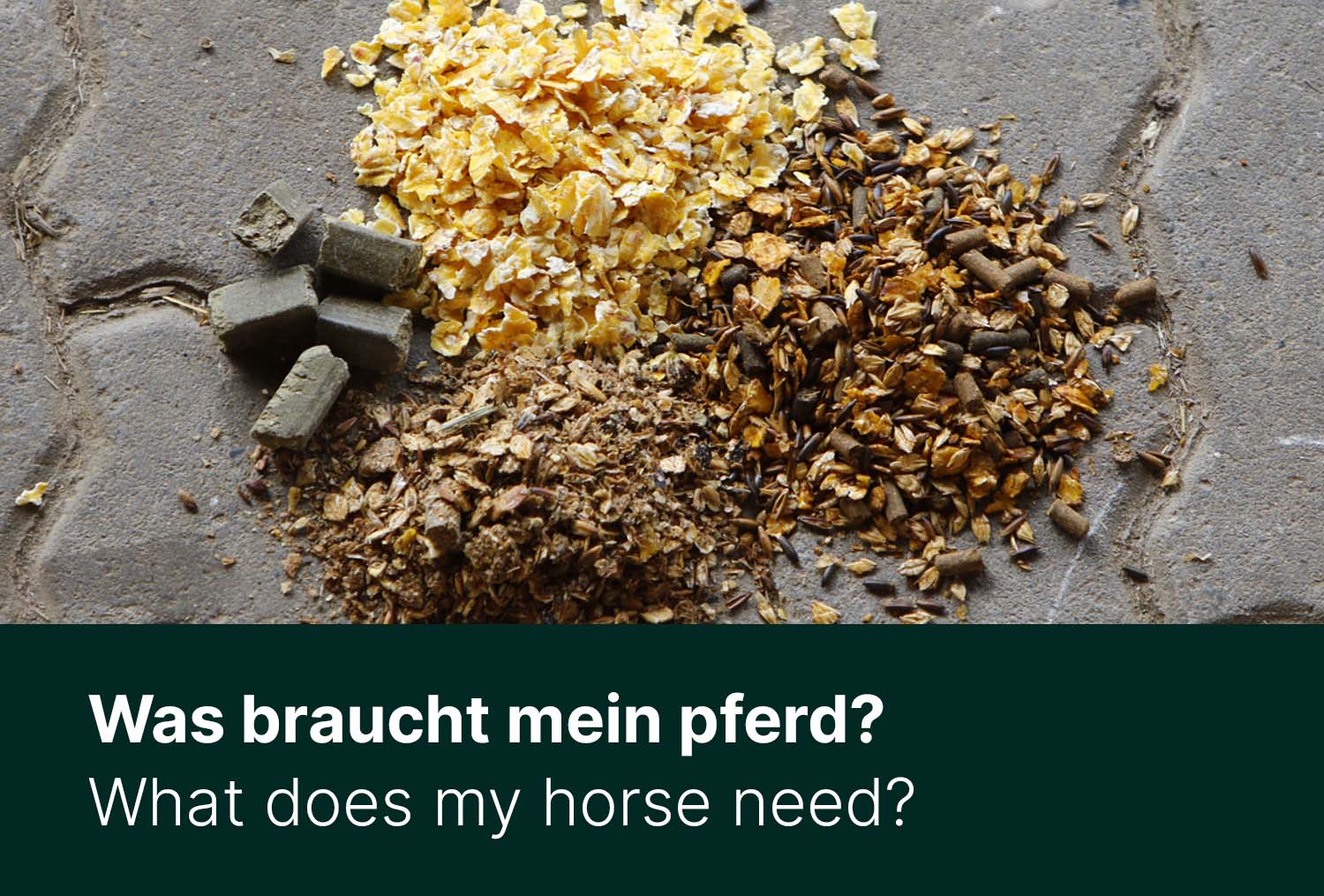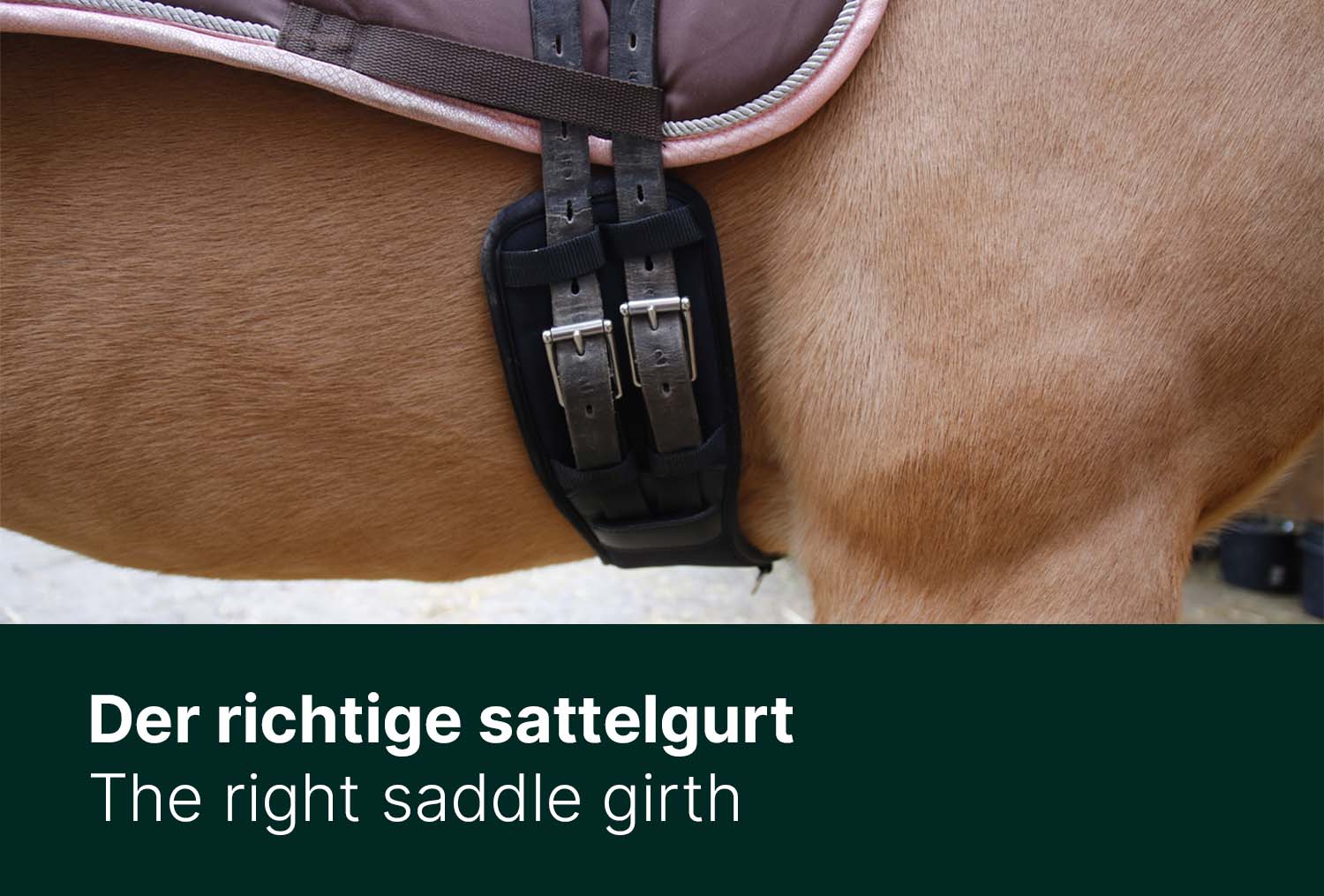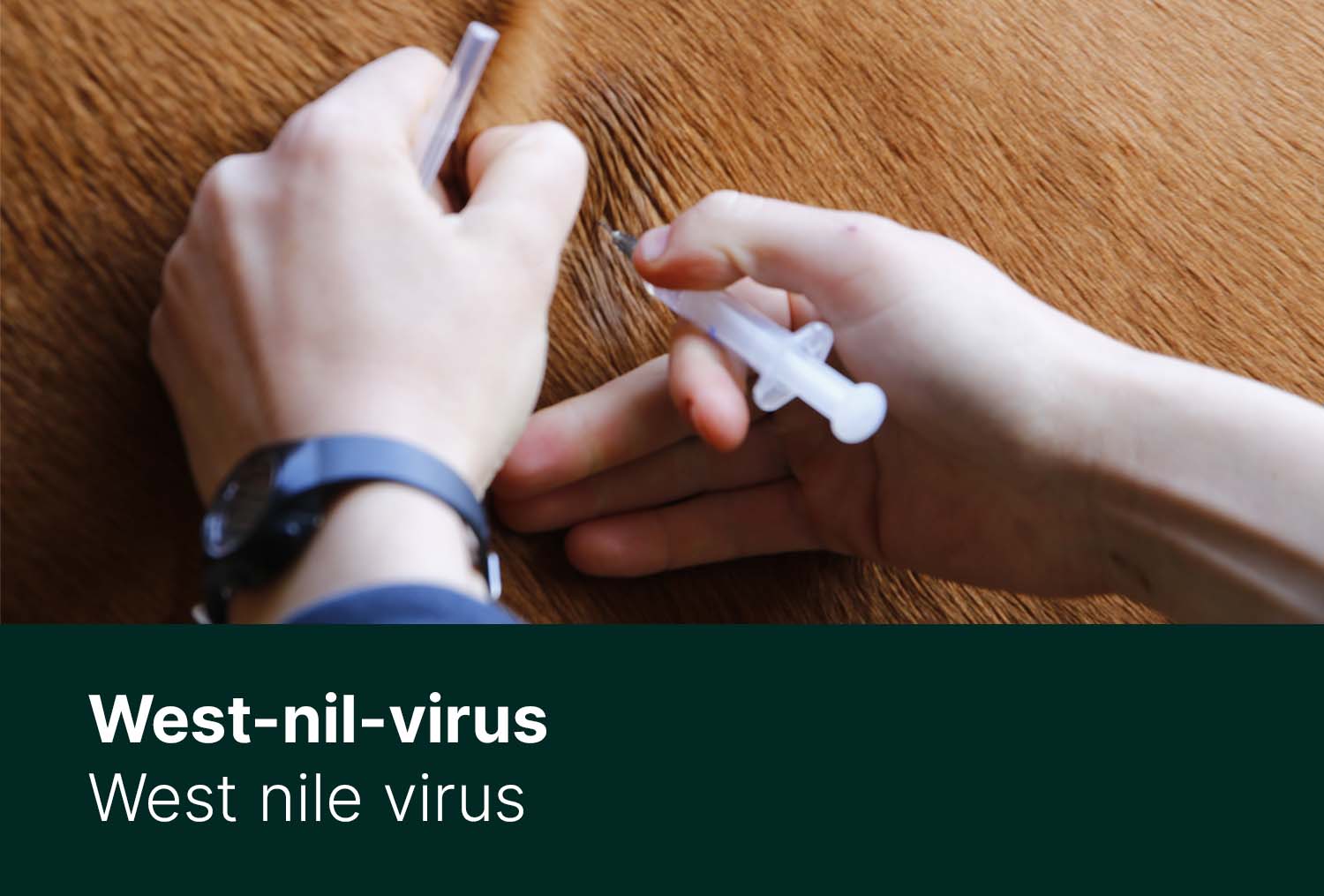Whether in times of Corona or when things just have to be quick: there are a few tricks to save time in the barn and still do everything that is necessary.
Set priorities and create weekly plans
Setting priorities is the most important thing in a daily stay in the stable. While the whole day is happily spent in the barn on weekends, the time during the week due to school, job or family is much shorter. So it is important to set new priorities every day: when should the box be mucked, when should the horse be moved and how, what other work is still to be done? In order to keep an overview, it is advisable to create a weekly schedule in advance. You don't have to stick to these in detail, of course, but a broad plan does provide a certain overview, which can be helpful in the hectic pace of everyday life. Simply enter in advance which appointments are pending: be it a visit from the veterinarian, private appointments or basically the time that you can spend.

- Adjust movement plan of the week
The next step is to consider how the horse's movement can best be designed - of course, spontaneity is also required if the weather should not play along. So the weekends are at least fundamentally better for rides, since you obviously have more time on the days off. On days when riding lessons take place, you should consider in advance when the rest of the stable work will be done. When in doubt, this prevents stress, especially if you have to drive somewhere to train. While in most stables you can switch to an outdoor space in summer if the hall is too full, it is more difficult in winter or in bad weather. An agreement or an allocation plan can remedy the situation internally in the stable, so that all adjusters and horse owners can benefit from it and the horse does not have to be "ridden" five days a week. For example, pole work or easy jogging on the lunge provide a nice change for the horse, but with several riders in the hall this work is more of a problem than being of use. Mutual respect is the motto of this time-consuming hobby.

- The work around it
The most time-consuming thing about equestrian sport is not riding itself, but the work around it - at least if the horse is not employed in a full-board farm. Mucking out the box, making food, cutting off the paddock or pasture, filling up with water, stuffing hay nets - all of this work takes a tremendous amount of time, especially if it is done on a daily basis. In the end, this is not necessary for many of these works.

Mucking out
Even if a freshly misted box simply gives a great feeling, too much hygiene in the barn is not good at all. In the horse apples in particular there are numerous bacteria and microorganisms that are essential for the digestion of the horse and the entire organism. It is important that the environment in the box or in the litter is right: For example, effective microorganisms can stop the rotting process and initiate a rotting process that is completely harmless to the horse. In addition, there is also no ammonia smell, which is an indication of the bad milieu and reminds the horse owner to decontaminate properly. EM, i.e. effective microorganisms, can be mixed or sprayed separately as a substrate under the bedding. It is important that you either sprinkle enough or only occasionally remove the apples from the box. Since most horse stalls are cast with concrete or screed, a “mat” also forms an optimal insulation layer and can minimize or even prevent the risk of injuries from slipping when standing up. If there is a shortage of time, fresh bedding can be sprinkled daily without any worries. At the weekend, the box can be cleaned properly when there is more time. The box takes just under five minutes during the week.

Paddock cleaning
Depending on the size of the paddock and pasture area, picking off can also take place separately at an appointment. If the pasture area is particularly large, it is usually sufficient to tow the green areas at the end of the year. The distributed apples thus immediately serve as fertilizer for the next year. On the other hand, if the areas are smaller, they should be regularly cleaned up. But this can also be done separately one day a week, as long as the paddock and pasture allocation does not change daily with different horses - keyword "worms".
Feed, hay and water
These three aspects of daily work have the most time saving potential. The daily feed can be prepared very easily and cheaply in advance and portioned into individual plastic trays with lids. The name and the time of day can be noted with a labeling device or edding. In summer, however, it is advisable not to put the feed boxes directly in the sun and to put juice feed such as carrots or apples directly in the trough. The water on the paddock and pasture can also be generously divided between several buckets. These are already available for little money. And so it is also not a problem if a playful horse knocks over one or the other bucket, because there are enough alternative water points. For summer pastures or long stays outside, you should also consider purchasing a water cart. These are often used in good condition and for a correspondingly smaller amount of money - so an acquisition is ultimately an investment for years that can save a lot of time. If the hay is put on the paddoch, the hay can also be pre-portioned. If it hangs dry, the quality does not change. Either pre-portion into several hay nets or store in hay boxes in large shopping bags like something from Ikea.

Clean up and grease leather things
Mostly, the clutter in the locker or the urgently needed care of saddle and bridle is particularly noticeable when you have little time to do and do everything. Therefore, simply make an "appointment" for tidying up in advance and write it down in the calendar.

Conclusion
Changing your own structure and organization takes time and self-discipline. Man is a creature of habit - just like the horse. This is why both parties benefit from a structured plan.












Change of coat - Tips and Tricks
Pasture Care